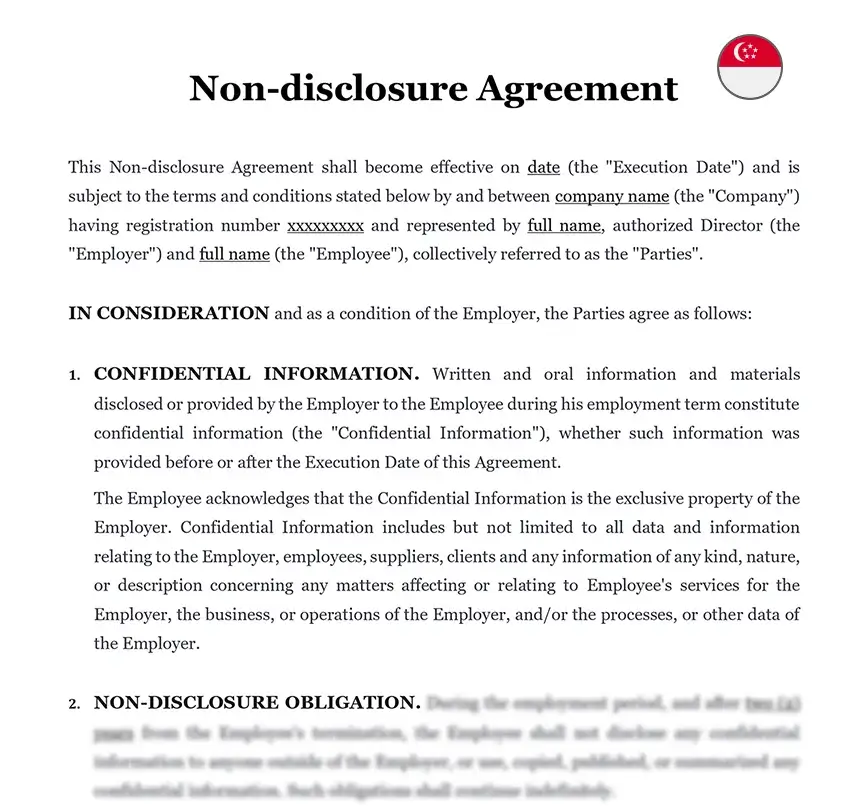Ready to use legal template
Drafted by experienced lawyers
Compliant with Singapore law
Ready to use legal template
Drafted by lawyers
Compliant with Singapore law
Learn more about Employee Confidentiality Agreement in Singapore
An Employee Confidentiality Agreement or non-disclosure agreement allows a business to protect itself from the disclosure of sensitive information about its operations. This sample Employee Confidentiality Agreement must be signed by all new employees at the company. The sample employee confidentiality agreement provided below is aimed to safeguard the company from the risks involved with the employee’s disclosure of strictly private information that, if divulged, would cause serious loss to the organization. The employee agrees to maintain complete confidentiality regarding his activities in the company.
Table of contents
-
What is an Employee Confidentiality Agreement?
-
Is Confidentiality Agreement important in Singapore?
-
Why use an Employee Confidentiality Agreement?
-
What is included in the Employee NDA?
-
What is a confidential information?
-
What if a confidentiality breach occurs in Singapore?
-
What to do if employees breach confidentiality?
What is an Employee Confidentiality Agreement?
An employee confidentiality agreement, also known as a non-disclosure agreement or a “NDA,” makes it clear to an Employee that he or she may not disclose company secrets under any circumstances, with the exception of prior written approval. It is advised that, in addition to their Contract, the employee sign the employee confidentiality agreement on their first day so that both parties are legally protected.
Furthermore, the employee confidentiality agreement is in effect until the employee’s termination or, in some cases, for a length of time beyond termination. Furthermore, the agreement remains in effect until the information becomes general knowledge or the employee is freed from the agreement.
Is Confidentiality Agreement important in Singapore?
Employees must be well-versed in the industries for which they work. A confidentiality agreement is essential for safeguarding the company’s financial information, customer data, and Intellectual Property from accidental or intentional disclosure.
Employees recognize that releasing sensitive information is a violation of contract and a criminal offense when they sign a confidentiality agreement form or a simple non disclosure agreement. Without such an agreement, businesses may have difficulty encouraging workers not to discuss personal information or penalizing those who do.
In short, establishing a confidentiality agreement has nothing to lose and a lot to gain.
Why use an Employee Confidentiality Agreement?
When an employer and an employee or worker reach an agreement to settle a workplace issue, they may utilize an NDA to keep either of the following confidential:
1. The specifics of a contract
2. The fact that an agreement was reached
1. Confidentiality of agreement information
When an employer and an employee or worker desire to settle a matter that one or both of them wish to keep private:
| ➤ The monetary amount agreed upon in a settlement deal |
| ➤ Any or all of the remaining settlement terms |
| ➤ Part or all of the events that led to the settlement agreement |




